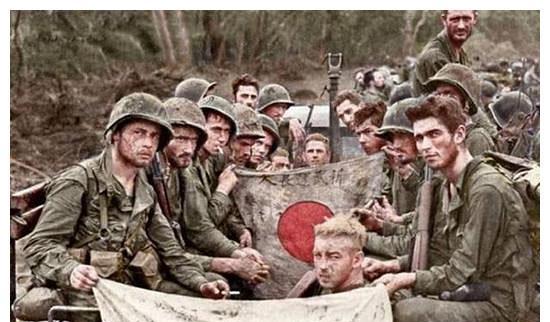Psychological warfare is an important means of warfare developed during World War II, and the main task is to influence the psychology of the people and soldiers of the enemy and us through propaganda means, so as to achieve the purpose of striking at the enemy and enhancing our own confidence in victory.
Limited by technical conditions, the means of psychological warfare in World War II are relatively simple, and broadcasting is the most effective means among them, which is not affected by terrain and distance, and is easily heard by both the enemy and us. Therefore, both sides of World War II attach great importance to the use of broadcasting methods to launch psychological warfare.

For American soldiers in the Pacific Theater, the most famous enemy broadcast was "Tokyo Rose." This is a psychological warfare tactic used by the Japanese side to broadcast fake news to the US military and break the morale of the US military. Because the announcers were young women with soft and sweet voices and proficiency in American English, the U.S. military called the broadcast voice "Tokyo Rose."
The radio show, whose real name is "Zero Point," plays some American pop music and country folk songs in addition to various news. American soldiers were dismissive of the fabricated news, but particularly liked the sound of Tokyo Roses and American music. Many soldiers recalled after the war that hitting Tokyo to see what the Tokyo rose looked like was one of the main motivations for their fight.
The announcers of tokyo roses were simply instructed to broadcast according to the script, and the responsibility for publishing fake news should not be counted on their heads. But one of the announcers had a legendary story after the war, first accused of treason and later a patriotic hero named Toguri Ikuko.
Toguri, a Japanese-American citizen, returned to Japan to visit her aunt before the war broke out. Unfortunately, she missed the last ship and had to stay in Japan. Japan implements a food rationing system, and Toguri Ikuko, who is not a Japanese citizen, can only buy food from the black market. By 1943, she had run out of savings and was in trouble.
Toguri had to work everywhere, first finding a job as a typist at Tokyo Radio, and then her superiors, who spoke English and had a good voice, let her work as an announcer. As a result, Toguri Ikuko became a member of the Tokyo Rose. Tokyo Rose is actually a team of 12 announcers, and only Toguri Ikuko confessed her identity after the war and paid the price.
After Japan's surrender, the two Japanese objects that American journalists most wanted to visit were the emperor and the Tokyo Rose. The two reporters were willing to pay $3,000 in exchange for an interview with Ikuko Toguri, who then signed and admitted to being a Tokyo rose.
A month later, Toguri was arrested by U.S. authorities in Japan on charges of treason. Because she was An American, broadcasting for the Japanese broke the morale of the American army. After a year of imprisonment and two more years of living in Japan, Toguri finally returned to the United States. However, she was re-arrested and escorted back to the United States.
This time it was the FBI that arrested her, still charged with treason. Although Toguri hired lawyer Wayne Collins to defend herself, and her broadcast was entirely scripted and made no conclusive treasonous remarks, the court sentenced her to ten years in prison, a $10,000 fine, and stripped her of her U.S. citizenship.
Toguri served six years and two months in prison before being released in 1955. But the matter did not end, under the efforts of the original defense lawyer Collins, and his son, who was also a lawyer, after nearly two decades of struggle, Toguri Finally obtained a pardon order issued by President Ford and regained her American citizenship. At this time, Toguri Yuko was already a 66-year-old woman.
At this time, the situation of Toguri Yuko was once again in the attention of American society, and many people thought that she was not only not a traitor, but a patriotic hero. Because she used clever puns on the radio to hint and comfort the audience, she fought against the Japanese Empire in this unique way.
A retired World War II veteran named Davidsdale even proposed to erect a monument to her so that the public would remember her patriotism. However, this proposal was not put into practice, and tokuri Ikuko's fate did not change as a result.
In 2006, Toguri died in Chicago at the age of 90. Whether it is a traitor or a patriotic hero, it is not her original intention. Her story fully reflects how helpless the fate of the little people in the war is.
[Reference: The Temperature of History]